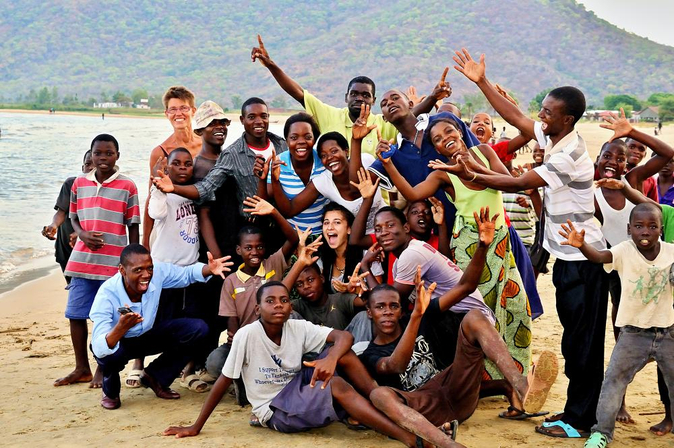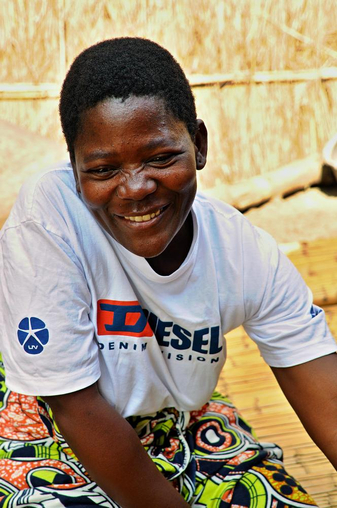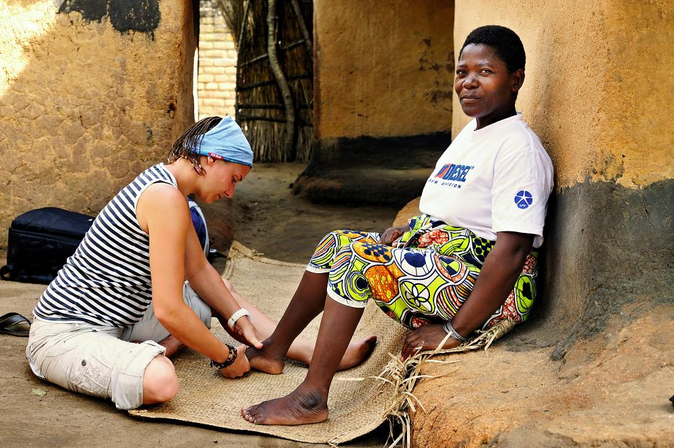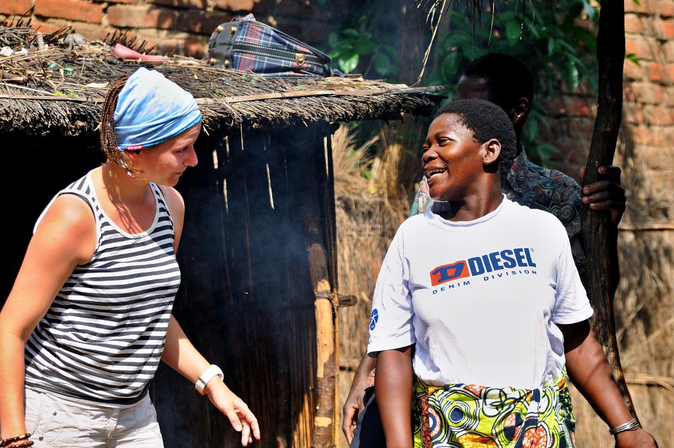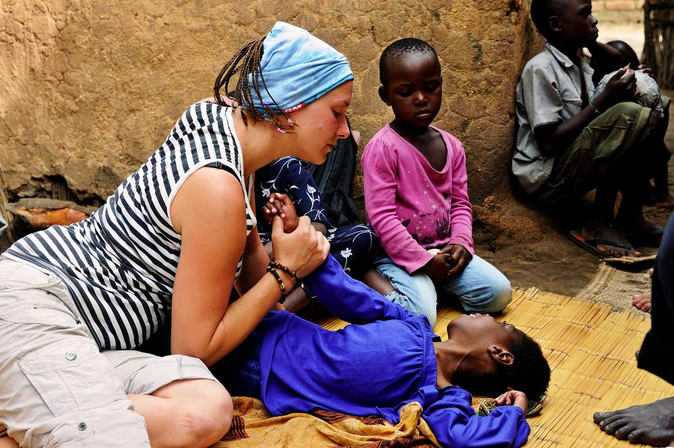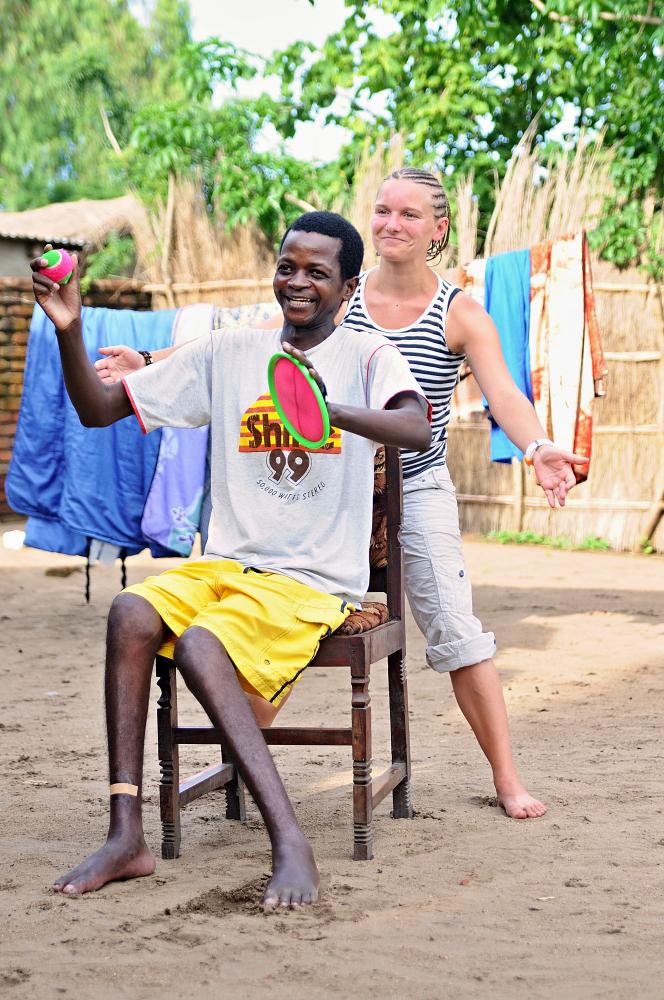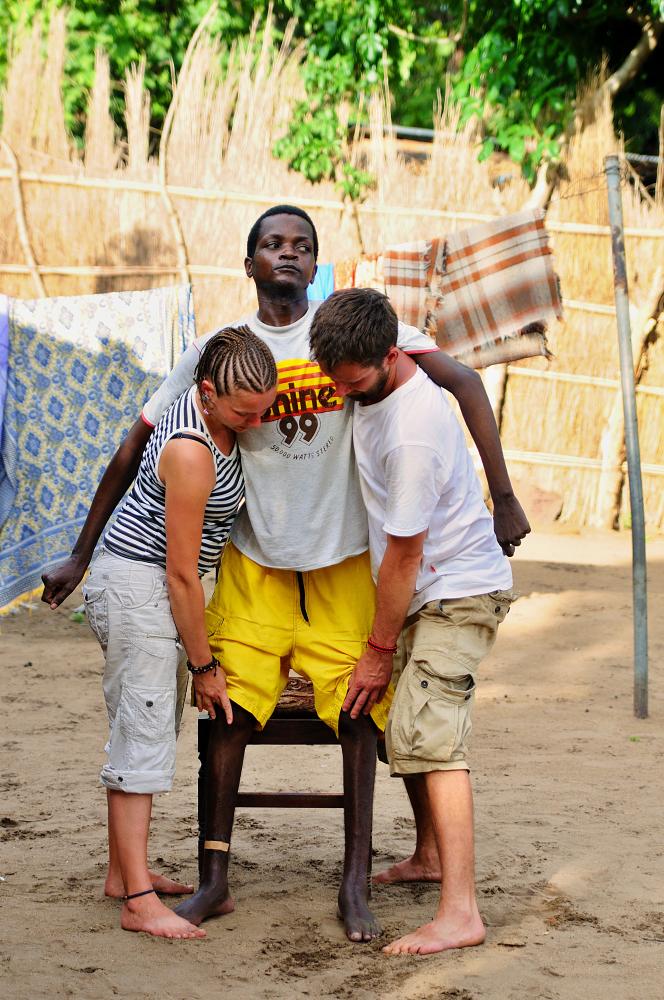Healthcare Delivered
13.05.2015
Lifuwu Health Center is the hub around which all health activities in Lifuwu are based. Serving as a rural health outpost, it provides basic health services to all of Lifuwu, including its surrounding villages. Mr. Zakeyo, the officer in charge is tasked with the daunting assignment of treating whatever illnesses, emergencies, and complications that arrive at his doorstep, and referring those who he cannot manage to the district hospital in Salima. He provides guidance and care for conditions ranging from pregnancy and birth to malaria to chronic illness with a confident attitude and a sparkle in his eyes.
In addition to providing medical treatment, Lifuwu Health Center is the point of origin for valuable health information to be disseminated. A drama group, sponsored by the clinic and consisting of some clinic staff along with community members and youth, performs skits, songs, and dances with messages to raise awareness about health issues such as hygiene, nutrition, and HIV/AIDS.
Another way Lifuwu Health Center gets health and wellness knowledge to the people is through a twice weekly community outreach program, supported by help2kids volunteers. This important program provides growth monitoring and immunizations to children in surrounding villages, eliminating the need for the lengthy journey to Lifuwu. An added benefit of this program is it regularly places a community health worker within the communities they serve, so they can deliver educational talks and lead young mothers in songs which educate them on essential practices such as cleanliness, breastfeeding, immunizations, and any other programs they may be able to benefit from at Lifuwu Health Center.
While the clinical staff at Lifuwu Health Center does an incredible job delivering essential health services to the community with limited supplies, there are some situations for which either resources or knowledge are simply not available, in which case the affected people must make-do. A person living with physical impairment is an example of such a situation.
In Malawian culture, a physical impairment is a devastating blow to one’s own self-image and how they are viewed by their community. When even regular day-to-day tasks involve significant physical exertion and manual labor, it is difficult to lead a normal life coping with even a small impairment. When Regina, a German physiotherapist arrived in Lifuwu to volunteer with help2kids, she learned about several community members who were experiencing difficulties related to their impairments. She worked with our Malawi Field Manager Nicole, the Health Advisory Committee Chairman Yona, along with the community members and their families to develop strategies and provide them with tools to make their lives easier.
Regina, Yona, and Nicole met with the community members and their families to discuss what problems they had and to set goals that Regina could help with. Here is a description of the work Regina did with a few of these people.
As a child, Latina had polio which damaged one of her shoulders and deformed one of her legs. She is a determined woman and is able to get around the area surrounding her household, but has difficulty traveling any distance or sustaining activity for a long time. Regina taught Latina exercises to strengthen her limbs and give her more endurance. By systematically strengthening the affected muscles, Latina will be able to train her limbs to function more normally.
Fazila was born weak with very little muscle tone. As she grew older, her muscles did not get stronger like other children, and she was not able to speak. Regina suspected a problem in her brain is the cause for her lack of muscle tone and coordination. She taught Fazila’s mother some exercises to minimize the loss of her muscle tone, and to stretch out her tight limbs. The experience is confusing and painful for Fazila, but it will help her maintain some control of her body. Regina suggested making Fazila a cart or a wagon to help her get out of her house and interact with other children to help stimulate her mind.
Over a year ago, Dominic was injured in a severe car accident which damaged his spine. After spending nearly a year moving from hospital to hospital, he was able to come home to Lifuwu under the care of his family.
Initially completely paralyzed, Dominic slowly regained the use of his arms, his core muscles, and some muscles around his hips and groin. With the goal of independently using a wheel chair in mind, Regina and Dominic worked to strengthen his core further, worked on his balance, and tried to minimize atrophy in his legs. Determined, but cheerful, Dominic said that it felt good to work so hard.
There are so many ways that people access healthcare in Lifuwu. The Lifuwu Health Center and help2kids have been partners for the past two years ensuring that outlying villages receive the immunizations, health programs, and monitoring that they require. Regina, however decided to take a different approach by regularly visiting her patients, hailing back to the days of family physicians making house calls to the community’s ill. If you were in Regina’s position, what would you do? There are so many different ways to help; you may have just the skill that Lifuwu needs. Consider volunteering with help2kids and discover the impact you can make!



